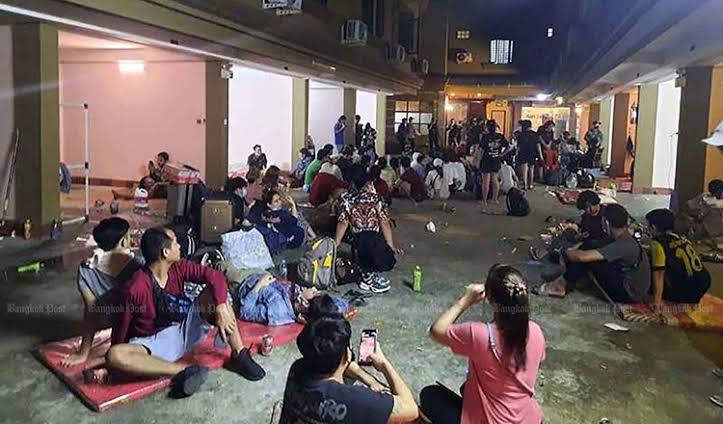The Trump administration is required to provide an explanation to a judge by Tuesday regarding why its deportation flights for Venezuelan migrants did not breach a court order that halted such removals. This comes after the administration claimed that revealing additional details could threaten U.S. national security.
U.S. District Judge James Boasberg, based in Washington, instructed Justice Department attorneys last week to clarify why the administration did not return two flights of individuals alleged to be Venezuelan gang members, who were deported to El Salvador on March 15, despite his two-week suspension of such deportations. The administration contends that these flights were conducted under a rarely invoked 18th-century statute.
Judge Boasberg is also seeking further information regarding the timing of the flights and the number of Venezuelans on board to assess whether the administration violated his order.
The judge has allowed the administration to invoke the state secrets privilege, which restricts the sharing of sensitive information in civil cases, and to justify this decision. In court documents submitted late Monday, the Justice Department indicated it would invoke this privilege, arguing that Boasberg’s inquiry constitutes judicial overreach that encroaches on the executive branch’s jurisdiction over diplomatic and national security issues.
“Revealing this information could reasonably be expected to cause significant harm to the foreign relations interests of the United States,” stated Secretary of State Marco Rubio in a declaration submitted to the judge.
After the Tuesday deadline for the administration’s response, attorneys representing the Venezuelan migrants who initiated the legal challenge will have until March 31 to reply. Boasberg has cautioned that there may be repercussions if he determines the administration violated his order, although he has not detailed what those repercussions might entail.
The situation has become a significant challenge for the Republican president’s broad claim of executive authority. With his party maintaining a majority in both the House of Representatives and the Senate, and largely supporting the president’s initiatives, federal judges have frequently served as the primary check on Trump’s extensive executive actions.
Following Judge Boasberg’s temporary suspension of deportations, Trump called for the judge’s impeachment, a move that could potentially lead to his ousting. In response, U.S. Chief Justice John Roberts issued an unusual statement criticizing Trump, asserting that appeals, rather than impeachment, are the appropriate course of action for addressing disagreements with judicial rulings.
‘NAZIS RECEIVED BETTER TREATMENT’
This month, Trump invoked the 1798 Alien Enemies Act to justify the expulsion of alleged members of the Venezuelan gang Tren de Aragua, despite the absence of final removal orders from immigration judges, which are typically required.
Judge Boasberg paused those deportations, stating that it was unclear whether the gang’s presence in the U.S. constituted an act of war by a foreign nation as outlined in the act. Historically, the Alien Enemies Act has been invoked three times in the U.S., most recently to intern and deport Japanese, German, and Italian immigrants during World War II.
Family members of many deported Venezuelan migrants dispute the alleged gang affiliations. Attorneys representing one deportee, a Venezuelan professional soccer player and youth coach, argued that U.S. officials incorrectly identified him as a gang member based on a crown tattoo that symbolizes his support for Real Madrid.
On Monday, a hearing took place before a three-judge panel of the U.S. Court of Appeals for the District of Columbia Circuit regarding the administration’s attempt to suspend the enforcement of Boasberg’s order. During the heated hearing, U.S. Circuit Judge Patricia Millett remarked that the deported Venezuelans were not given due process to challenge the administration’s claim that they were affiliated with Tren de Aragua.
“Nazis received better treatment under the Alien Enemies Act.”




